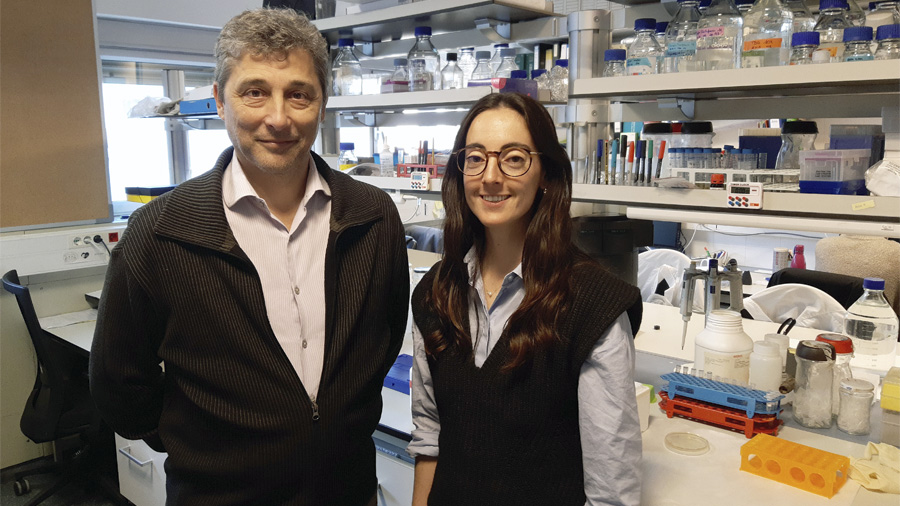Positive Initial Results for Gene Therapy Targeting SPG52, Affecting Three Children in Spain
The research team investigating gene therapy for treating Spastic Paraplegia Type 52 (SPG52) has successfully completed the first preclinical trials. These trials were conducted on neurons derived from stem cells of Abril Merino, an eight-year-old girl with the condition, and on mice. The research has been made possible thanks to the UAB's ongoing crowdfunding campaign, with significant support from the association La Lucha de Abril.

The results demonstrate that the therapy has corrected an impaired neuronal communication mechanism characteristic of SPG52 and has improved mobility and learning abilities in the affected mice. "These positive results encourage us to continue advancing the research and give us hope that we can help patients enhance their quality of life, autonomy, memory, and learning abilities", said Miguel Chillón, ICREA researcher at the Institute and at the Vall d'Hebron Research Institute (VHIR). Dr Chillón, who heads the Gene therapy for diseases affecting the CNS research group, leads the study alongside Dr Assumpció Bosch.
In neurons carrying mutations in the gene responsible for SPG52, the team found that the treatment restores the functionality of the ATG9A protein, which is critical for protein trafficking in the brain and for proper neuronal communication. Dysfunction of this protein leads to its accumulation and retention in the brain, one of the primary manifestations of SPG52.
In SPG52-model mice, the gene therapy corrected the muscle’s response to nerve impulses from the brain, and this normalization persisted for at least one year after treatment. Impaired muscular response causes spasms in the lower limbs of affected individuals, leading to mobility challenges. Additionally, the treatment significantly improved motor coordination and learning in the mice.
The research team is now finalizing molecular, biochemical, and histological analyses of the animal models and plans to publish a detailed scientific article on the findings. Concurrently, they are designing safety and toxicity studies as a preliminary step toward applying for a clinical trial with the Spanish Agency of Medicines and Medical Devices (AEMPS).
Since the research began in 2020, it has incurred a total cost of €500,000, funded through the UAB's crowdfunding campaign. Contributions from 1,700 donors, including over €110,000 in 2024 from La Lucha de Abril, have been crucial. This association, founded by Abril Merino’s parents, has raised funds through various solidarity events, including a dinner, a comedy show, and a race organized with the Mossos d’Esquadra. The campaign has also received significant contributions from the family of Samuel, who donated over €27,000 in 2024 via the association Corro por Marina y Samuel.
"Researching therapies for ultra-rare diseases requires significant financial investment, which is rarely undertaken by health sector companies or public administrations due to the low incidence of these conditions. Public solidarity is often the only way to pursue this research", noted Miguel Chillón.
An additional €500,000 is needed to fund the next stages of research, so the crowdfunding campaign remains active.
The development of gene therapy for SPG52 also benefits from collaboration with prestigious institutions such as the Bellvitge Biomedical Research Institute (IDIBELL), the Germans Trias i Pujol University Hospital, and the La Caixa Foundation.